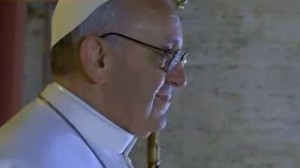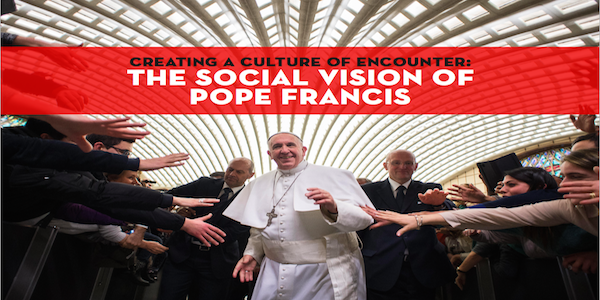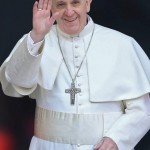 Ok, I’ll just dive in. What struck me most about Pope Francis’ first public appearance was his apparent humility and his focus on prayer. First, he asked us to pray for Benedict and he led the crowd in the piazza and all those listening and watching around the world in an Our Father, Holy Mary, and Glory Be. Granted, it was in Italian, but I think most anyone got a strong enough sense to join in.
Ok, I’ll just dive in. What struck me most about Pope Francis’ first public appearance was his apparent humility and his focus on prayer. First, he asked us to pray for Benedict and he led the crowd in the piazza and all those listening and watching around the world in an Our Father, Holy Mary, and Glory Be. Granted, it was in Italian, but I think most anyone got a strong enough sense to join in.
Then, before giving his blessing, he asked us to pray for him.
And don’t miss the plenary indulgence (under the usual conditions) that he announced for everyone present, actually or virtually.
There’s been a lot of talk of what strengths the new pope would need. I’ve enjoyed many of these conversations and have learned a great deal.
But I constantly return to the fact that he needs to be a man centered in prayer. He will not be able to fulfill any of his duties (or our plans) without prayer.
On a personal level, I approached Lent somewhat distracted, but sensing a need to go deeper in my own prayer. I was in Rome just before Benedict announced his resignation and that sense of the need for prayer was not just my own. I met with various experts, all of whom I’m pretty certain are more solidly grounded in prayer than yours truly, and the conversations came down to prayer and penance…which was also the focus of Benedict’s message to us during his last few weeks as Peter.
There was an interesting interview by Paolo Rodari with Cardinal Cottier, papal theologian emeritus, whom I had the privilege of meeting several times before he retired. (The interview is in Italian, but you can probably get a good sense of it using Bing or Google translator.)
At one point, Cardinal Cottier says [my translation]:
“Certainly, the Pope is asking for penance for the internal error (sins/mistakes) above all. The errors do not represent the Church in her entirety, but they cannot be denied. The Pope, therefore, is asking [first] for an internal conversion and then a return to working for the good of the Church.”
 Now our new Peter is calling us, just as Jesus did the apostles and disciples, to pray. I’m guessing that he’s not far in his sentiments from those expressed by Cardinal Cottier.
Now our new Peter is calling us, just as Jesus did the apostles and disciples, to pray. I’m guessing that he’s not far in his sentiments from those expressed by Cardinal Cottier.
To me it’s a great consolation that he chose the name Francis. As a Jesuit, he might have in mind St. Francis Xavier who was responsible for the conversion of hundreds of thousands of people. But also perhaps he’s thinking perhaps of the humility and prayerfulness of St. Francis of Assisi, a man knowing for fostering peace, starting with the individual. At least, that’s my take on it. Feel free to agree or disagree. But let’s join together in prayer.











